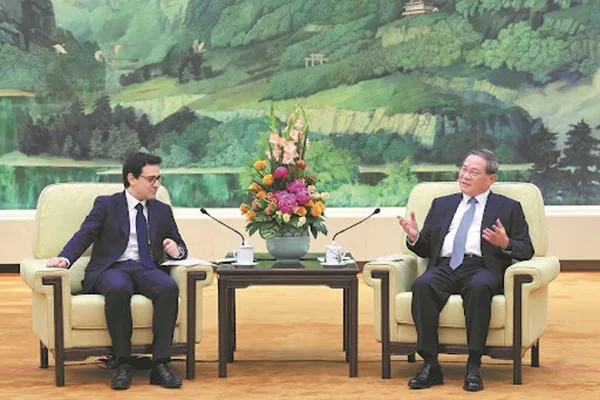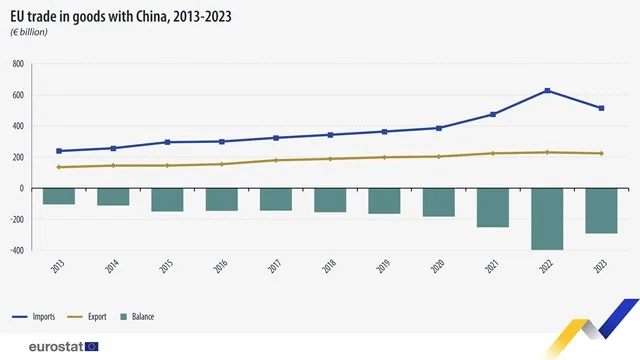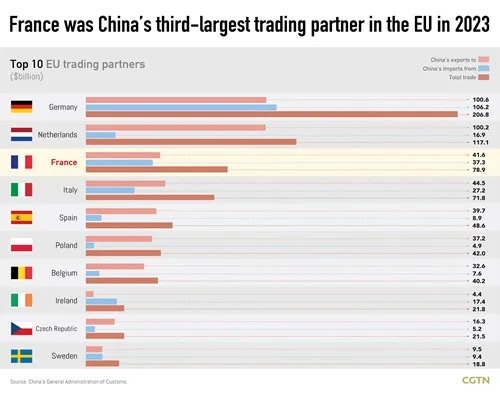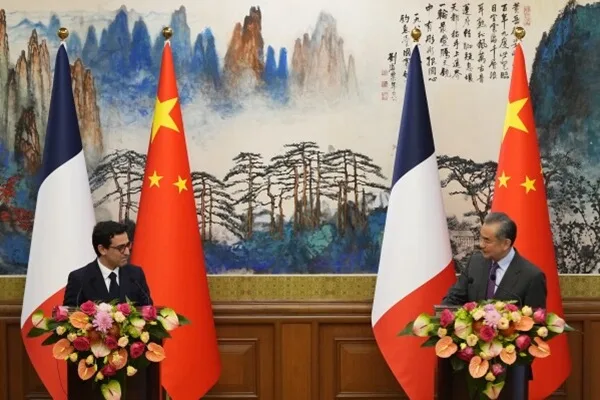Ahead of Xi’s Visit to France, French FM Meets with Counterpart in Beijing
On Monday 1 April 2024, French Foreign Minister Stephane Séjourné arrived in Beijing in preparation for the proposed state visit to France by Chinese President Xi Jinping. The visit to France by President Xi is programmed for May 2024 and will follow that of President Macron in China in April 2023.
In addition to a working session with his Chinese counterpart Wang Yi, Séjourné was also scheduled to have a tête-à-tête with Chinese Premier Li Qiang to exchange views on international affairs and other matters of common interest.

2024 is rather a special year: firstly, Paris is hosting the summer Olympics; secondly, the 27th of January 2024 marked the 60th anniversary of the establishment of diplomatic ties between France and China and a series of activities will be spread out over the year.
France is perceived by China as the ‘weakest link’ in the Western United Front bent on containing China. Indeed, during his visit to China in 2023, Macron did not fail to underline the ‘strategic autonomy’ of France and pointed out that ‘one should not follow the US blindly.’
“The European Union is a very open market, the most open in the world. But the current deficits with a certain number of countries, including China, are not sustainable for us.”
France FM Stephane Séjourné

Nevertheless, several issues are at stake. The deepening of the trade deficit between France and China, or more substantially between EU and China, is deemed to be ‘unsustainable.’
As a result of geopolitical tensions, the trade volume between #EU and China slid to about EUR 700 billion in 2023. Exports to China remained more or less at the same level at EUR 200 billion, but imports from China slipped to EUR 500 billion, representing a decrease of EUR 100 billion compared to 2022. The EU represents the 2nd largest trading bloc with China, behind ASEAN.
On the Chinese side, the official discourse harks back to ‘free trade’ and ‘globalisation.’ However, after the COVID pandemic, the world seems to have shifted away from Globalisation and tilted back to Nationalism or Regionalism, with the EU declared #derisking policy so that it is not ‘overly dependent on any single country’.
France is China’s 3rd largest trading partner — behind Germany and the Netherlands — within the EU, and China is France is the top trading partner in Asia and the 7th largest in the world. In 2023, bilateral trade volume reached USD 80 billion, with China enjoying a surplus of about USD 4 billion.
Another point of contention is the exponential growth of Chinese #EV on the EU market. The EU has already enacted a ban on vehicles with petroleum engines as from 2035 and the take-up of EV is quite robust. In order to protect its local automakers, the EU has initiated an investigation into ‘alleged dumping.’ The Chinese side has retorted that European customers prefer Chinese cars due to its ‘modern features’ and ‘good value for money.’

“I believe the facts have proved and will continue to prove that China constitutes opportunities to Europe, rather than risks. The two sides are partners not opponents.”
China FM Wang Yi
Yet another disaccord is about Ukraine. Although France and the EU have called for China to condemn Russia for its ‘invasion of Ukraine’, the official position of Beijing is that it has a ‘neutral stance’. In reality, China is effectively supporting Moscow by procuring more Russian oil and gas. Getting hydrocarbon from Russia at discounted prices, China does not seem to be in a hurry to see an end to the Ukraine-Russia conflict.
On the other hand, both countries appear to be on the same page with respect to the situation in Gaza. Both sides have called for a ceasefire and pacific talks leading to a ‘two-state solution.’
In terms of potential cooperation areas, the options are wide and varied, ranging from aerospace, submarine, nuclear energy, green technology to culture and more.

